Water is essential to your body’s survival. Water is necessary for every cell, tissue, and organ to function correctly. Your body uses water, for instance, to lubricate joints, eliminate waste, and maintain body temperature. Maintaining adequate hydration is essential for excellent to good health. So of course drinking enough water throughout the day should become a regular habit. It only makes sense to do so because it is very hard to function without your health.
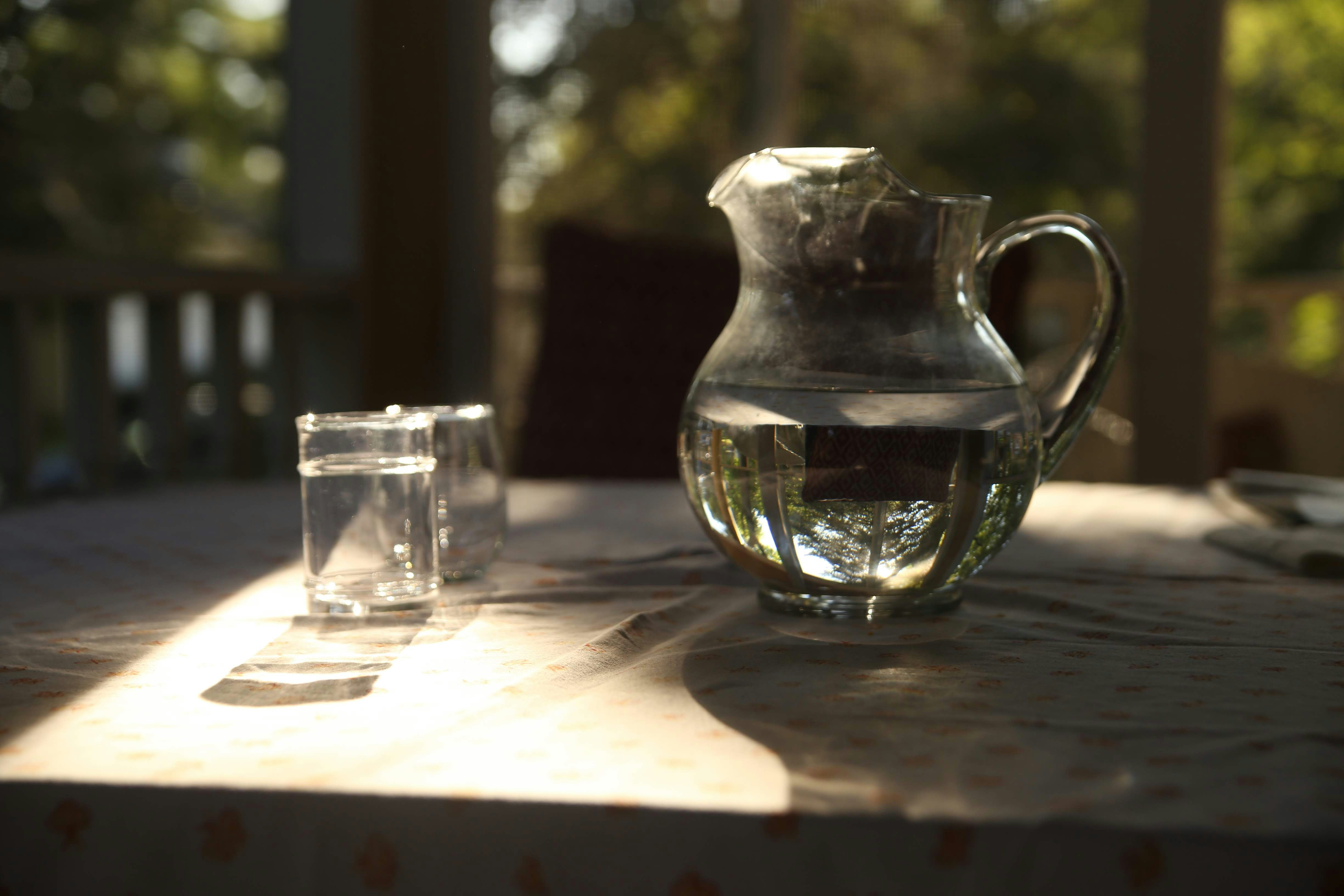
THE WAY TO BETTER HEALTH
The standard advice that is given is to consume six to eight ounces glasses of water daily. This sounds like a realistic objective. However, to stay hydrated, various people require varied quantities of water. When thirsty, most individuals maintain proper hydration by consuming liquids, such as juices or sodas. In some instances, more than eight glasses might be required. There may be those who need more and others who require less; it just depends on the individual.
Plain water is ideal for remaining hydrated, but other foods and beverages can also be beneficial as well. Water is contained in soup broths, fruits, and vegetables (such as watermelon, tomatoes, and lettuce). Drinking milk, herbal teas, and fruit and vegetable juices increases the amount of water you should consume daily. Just remember to keep calorie-dense, sugary drinks to a minimum.
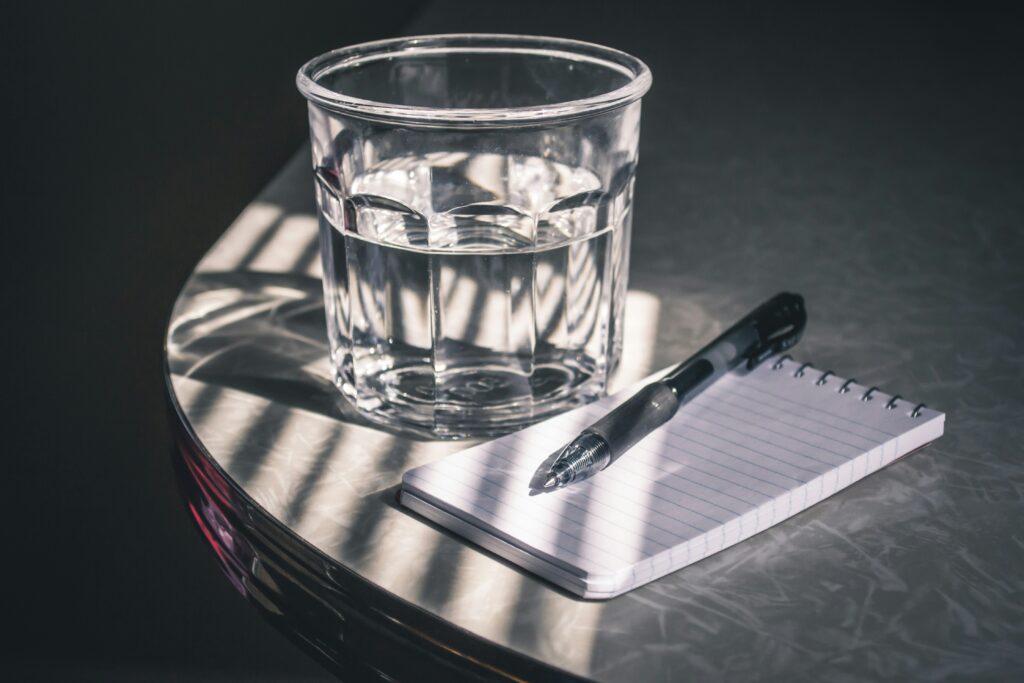
CAFFEINE AND WATER
Coffee, tea, and soda are a handful of examples of caffeinated beverages that can slightly increase your regular water intake. For the majority of people, 400 mg of caffeine is not dangerous. The quantities of caffeine in common drinks are as follows:
12 ounces of carbonated soda: 30–50 mg
30 to 50 mg in 8 ounces of green or black tea
Eight ounces of black coffee equals 80–100 mg.
Energy drink, 8 ounces: 45–80 milligrams
However, consuming fewer caffeinated beverages is advised.
Caffeine causes you to urinate more often, making it challenging to stay hydrated. Additionally, it may cause jitteriness or anxiety. So, it is strongly advised that you consume fewer caffeinated beverages.
To increase your physical endurance while playing sports or exercising, sports drinks may be an option. Sports drinks have been known to produce beneficial effects, including longer-than-usual periods of physical activity at greater-than-usual levels. The power boost is in the electrolytes and carbohydrates included in the sports drinks.
They aid in the body’s water absorption. However, certain sports drinks have a lot of added sugar, calories, and sodium. Look at the label to see the serving size. Typically, a bottle holds multiple servings. Caffeine is also present in several sports drinks. Recall that 400 mg is the maximum quantity of caffeine that is safe to take in one day.
Sports drinks and energy drinks are different. Energy drinks are often high in caffeine. Additionally, they contain substances (taurine, ginseng, or guarana) that overstimulate you. The body does not require these items. The majority of these beverages have a lot of added sugar. Doctors advise against giving energy drinks to kids and teenagers. These drinks don’t provide enough hydration because of their high caffeine content.
Here are some suggestions to help if you have trouble drinking enough water…
Carry a bottle of water with you throughout the day. To be earth savvy, it is preferred that you bring a reusable bottle and fill it with tap water to cut expenses.
If you don’t like the flavor of plain water, try adding an orange, lime, or lemon slice to your drink. This article has more suggestions about infusing your water with different types of fruit.
Before, during, and after an exercise, sip water.
Drink water if you’re feeling hungry. It’s common to mistake thirst for hunger. Consuming water won’t satisfy true hunger. Water consumption may also support a healthy weight-loss strategy. According to several studies, drinking water can make you feel fuller.
If you find it challenging to remember to drink water, make it a routine for yourself. Drink water, for instance, when you get up, have breakfast, lunch, and dinner, and before bed. Alternatively, start each hour with a little glass of water. When you visit a restaurant, drink water. It’s free and will help you stay hydrated.
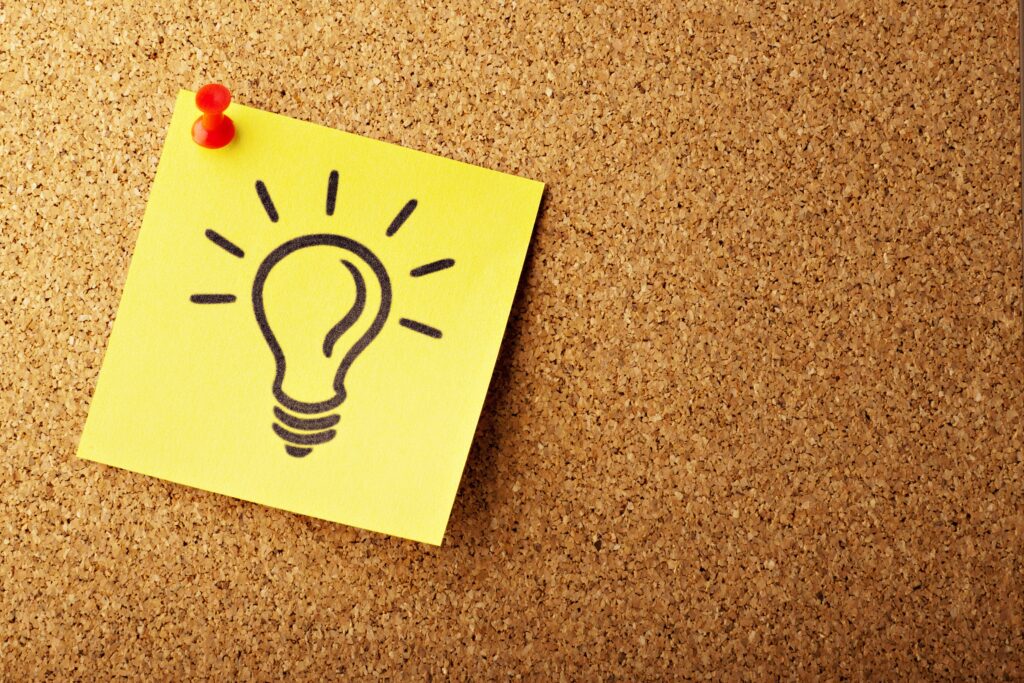
THINGS TO THINK ABOUT
If you don’t drink enough water, you risk dehydration, which indicates that your body is not getting enough fluids to function correctly. If you’re dehydrated, it may show up in your urine. If it’s pale yellow or colorless, you’re drinking enough water. Dark yellow to amber in color urine indicates that you can be dehydrated. There are further indicators that you might be dehydrated if one or more of the following occurs:
perplexity
headache
mouth dryness
excessive thirst
no tears when crying
tiredness or drowsiness
amber to dark urine color
feeling lightheaded or dizzy
Urine that is scarce or nonexistent
Dehydration is a greater danger for certain individuals. Among them are those who:
are nursing or pregnant
are ill (temperature, nausea, diarrhea)
are attempting to reduce their weight
don’t drink enough fluids throughout the day
exercise too much. Prolonged high-intensity exercise in the heat isn’t good.
possess specific medical diseases (bladder infection, kidney stones, etc.)
As you age, your brain might become less sensitive to dehydration. It doesn’t communicate thirst, which puts more mature people at a higher risk of dehydration.
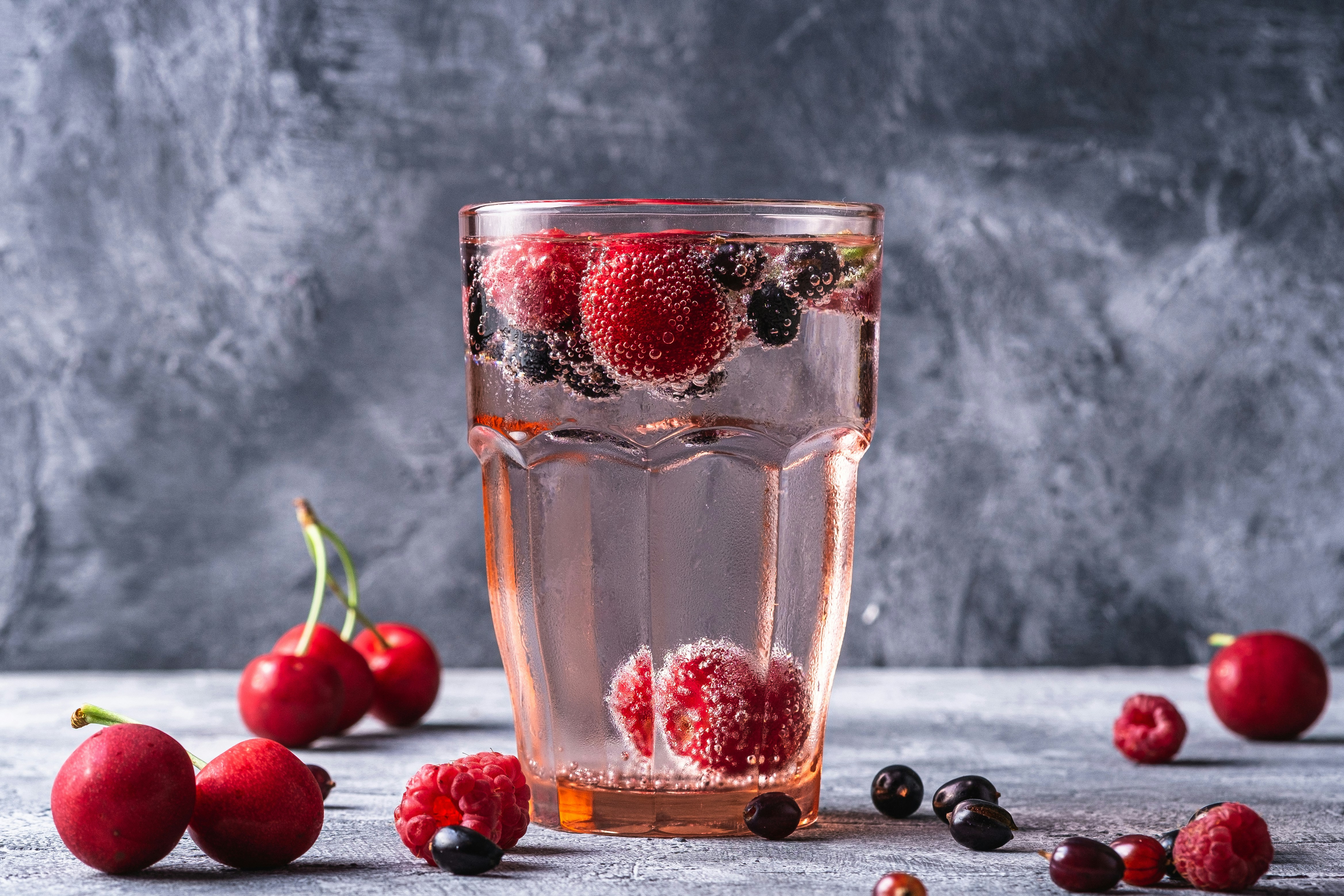
INFUSE YOUR WATER FOR FLAVOR!
Add a little natural sparkle to your water by infusing it with natural healthy, low-calorie choices such as edible flowers, fruits, herbs, and/or spices. Infused water is easy to make. Just combine the contents with a jar or bottle of water, cover, and let steep for a bit. You have two options: strain the fruit or sip via a straw. Alternatively, you can buy an infuser pitcher or container that holds the ingredients in place while letting the taste soak into the water.
Ideas for flavors:
- Half a lemon, finely sliced, plus 1/2 cup blueberries, smashed or cut in half for more taste
- Watermelon (3/4 to 1 cup cubed) plus 2-3 sprigs of basil
- ½ cup chopped or smashed cherries plus a half-sliced, thinly sliced lime
- 1/4″ piece of peeled ginger root + 1/3 cup of chopped or smashed mango
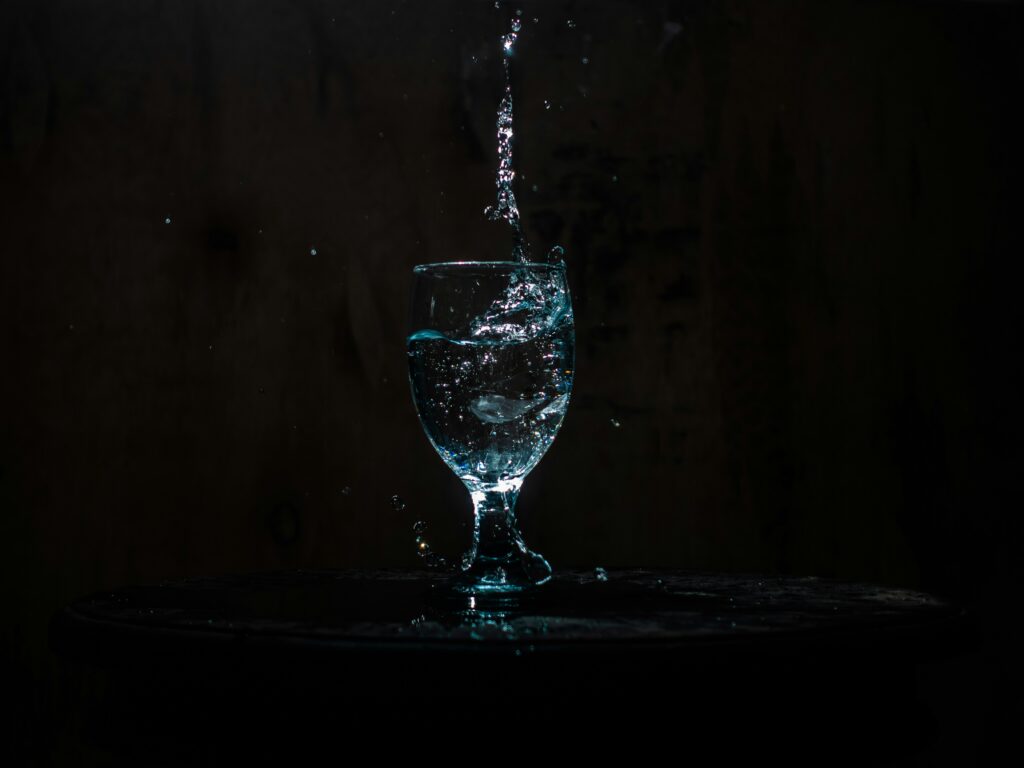
THE LAST TWO CENTS
Keep in mind that over 50% of your body weight is composed of water. You lose water daily through perspiration, breathing, and bathroom breaks. When it’s hot outside, you lose water even more quickly, as does exercising or having a fever. Diarrhea and vomiting can also cause fast water loss. Make sure you actively consume a lot of water to prevent dehydration.
`